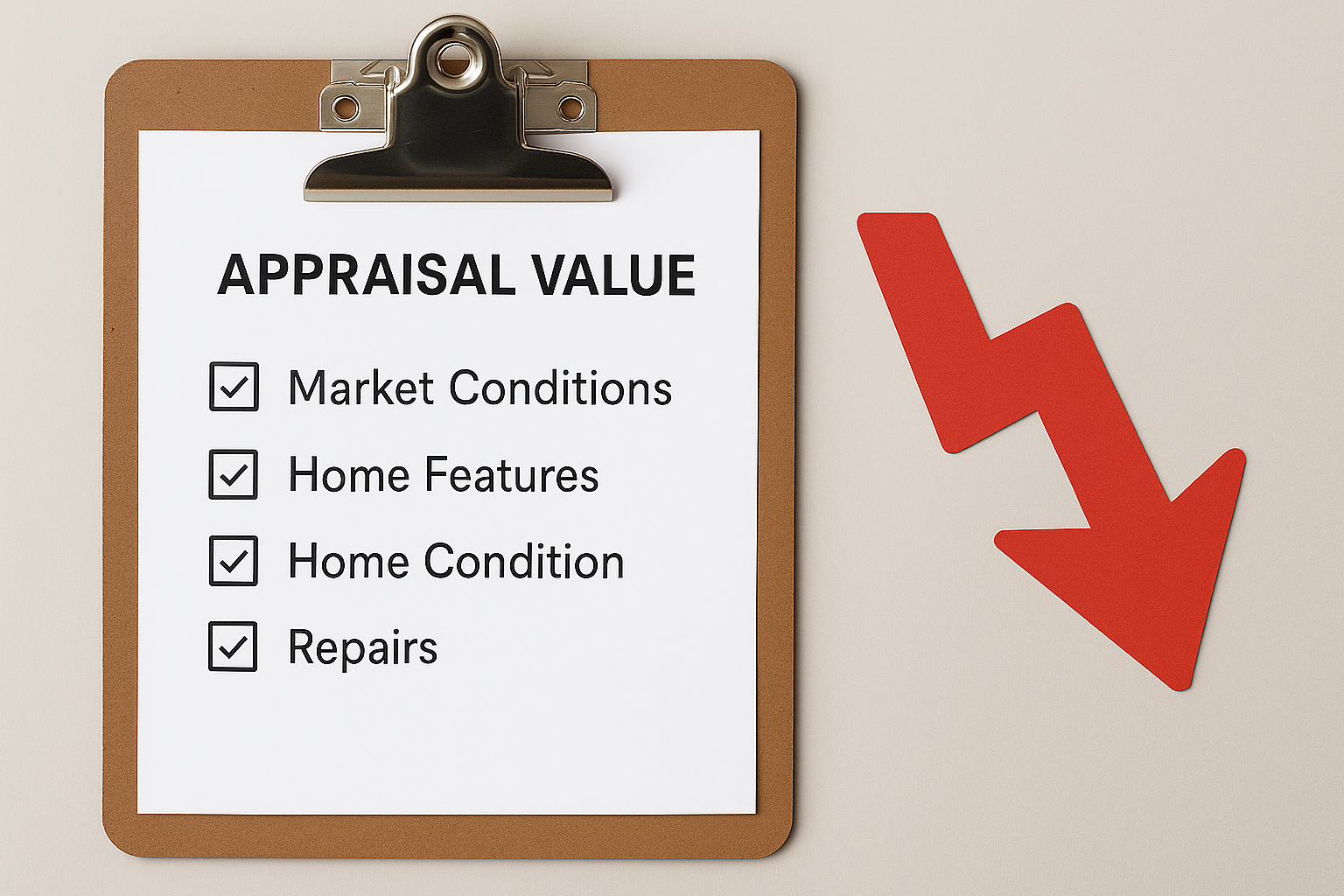Table of Contents
ToggleTop 3 Mortgage Renewal Mistakes To Avoid
For Canadian homeowners, mortgage renewal is a significant financial milestone. It’s an opportunity to reassess your financial health, explore better deals, and make decisions that could save you thousands of dollars over the term of your new mortgage. However, it’s also a point where mistakes are often made—mistakes that could end up costing you more in the long run.
In this article, we’ll discuss the top three mortgage renewal mistakes to avoid and how being proactive can make a huge difference in your financial future. We’ll also provide actionable tips to help you get the best deal possible. Whether you’re dealing with good, bad, or poor credit, being informed and avoiding these common pitfalls can help you secure better terms and reduce anxiety during the renewal process.
Understanding the Mortgage Renewal Process
Mortgage renewal happens when your current mortgage term ends, and you need to either renew with your existing lender or seek a new lender. This process typically starts a few months before the end of your term when your lender sends you a renewal offer. It’s crucial to understand that this is not merely a formality but a significant opportunity to improve your mortgage conditions.
In Canada, lenders are required to send renewal offers at least 21 days before your mortgage term ends. However, homeowners are advised to start exploring renewal options much earlier—ideally, four to six months ahead. This timeframe allows you to compare rates, evaluate different lenders, and decide whether you should switch or stay. Unfortunately, many homeowners overlook this crucial opportunity, leading to mistakes that cost them in the long run.
Mistake #1: Accepting Your Current Lender’s Offer Without Question
One of the most common mistakes homeowners make during mortgage renewal is simply accepting their current lender’s renewal offer without exploring other options. Lenders often rely on the fact that homeowners are too busy or uncomfortable negotiating, and they send offers that may not be the most competitive in the market. This mistake can lead to paying higher interest rates than necessary.
Why Shopping Around Matters
Shopping around during mortgage renewal is critical because different lenders offer different rates and terms. Even a small reduction in interest rate can translate to thousands of dollars saved over the term of your mortgage. Don’t be afraid to compare offers and even negotiate with your current lender—competition in the mortgage market is fierce, and lenders are often willing to provide better terms to retain customers.
Real-Life Example: Sarah and John in Whitby, Ontario
Sarah and John, a couple from Whitby, Ontario, recently had their mortgage coming up for renewal. They received an offer from their current lender and, without considering other options, they decided to accept it right away. In their eagerness to get it over with, they missed the opportunity to explore other lenders. Little did they know, they could have found a lender through a mortgage broker offering a lower interest rate and better terms, potentially saving thousands over the life of their mortgage. This oversight could mean higher monthly payments and added financial stress.
Moral of the Story:
It pays to shop around and compare offers when your mortgage is up for renewal. Don’t be afraid to take the time to evaluate your options—the savings can be substantial.
How Much You Could Save by Switching Lenders
Consider this: a 0.5% reduction in your mortgage rate on a $300,000 mortgage could save you approximately $1,500 per year. Over a five-year term, that’s $7,500 in savings. This kind of difference can have a significant impact on your household budget and overall financial well-being.
Mistake #2: Not Considering a Different Mortgage Term or Rate Type
The second mistake many homeowners make is failing to consider changing their mortgage term or rate type during renewal. Many simply stick with what they had previously—whether it’s a fixed or variable rate—without evaluating whether a change might be more beneficial for their current financial situation.
Fixed vs. Variable Rates: Pros and Cons
When renewing your mortgage, you have the opportunity to choose between a fixed or variable interest rate. A fixed-rate offers stability, as your payments remain the same throughout the term. This is great for those who prefer predictability and want to avoid market fluctuations. On the other hand, a variable rate might offer a lower initial rate and the potential to save money if interest rates remain stable or decrease. However, it comes with the risk of rising payments if rates increase.
Evaluating Your Current Situation
Consider your financial situation—has it changed since your last renewal? Are you more comfortable with risk, or do you prefer stability in your payments? If you’re nearing retirement or have a tighter budget, a fixed rate might be the better option. If you have the financial flexibility to absorb potential increases, a variable rate could lead to savings.
Recent Interest Rate Trends in Canada
Interest rates in Canada have been fluctuating recently, and understanding these trends is crucial when deciding between fixed and variable rates. Consult the Bank of Canada’s latest updates to get an idea of where rates might be headed, and decide accordingly.
Hypothetical Scenario
Imagine a homeowner who opted for a five-year fixed rate during their last term, despite variable rates being significantly lower at the time. Over the past five years, they ended up paying much more in interest than they would have with a variable rate. While a fixed rate offers peace of mind, failing to evaluate the potential savings of a variable rate can be costly. Mind you as of today variable has trended higher so it’s important to consult a professional for advice.
Contact A Mortgage Renewal Specialist
Mistake #3: Ignoring Your Credit Situation and Financial Health
Another major mistake is ignoring your credit score and overall financial health when approaching mortgage renewal. Many homeowners assume their lender will simply renew their mortgage regardless of their current credit standing. However, your credit score and financial health can significantly impact the rate your lender offers you.
How Credit Score Impacts Renewal Rates
Your credit score plays a significant role in determining the interest rate you receive at renewal. If your credit score has dropped since your last mortgage term, you may be offered a higher interest rate. Conversely, if your credit score has improved, you might qualify for a better rate, which can save you money over the term of your mortgage.
Debt-to-Income Ratio’s Effect on Mortgage Rates
Your debt-to-income ratio is another critical factor. Lenders look at how much debt you have compared to your income to assess your risk level. If you’ve accumulated a lot of debt since your last renewal, you may be seen as a higher-risk borrower, which could lead to higher rates. Reducing your debt load before renewal can help you secure a better deal.
Steps to Check and Improve Your Credit
Before your mortgage renewal date, it’s a good idea to check your credit report and address any issues that might be negatively impacting your score. Pay down high-interest debts, ensure you’re making all payments on time, and avoid applying for new credit in the months leading up to your renewal.
Tips for Avoiding These Mortgage Renewal Mistakes
- Start Early: Begin shopping around for renewal options four to six months before your term ends. This gives you time to compare rates and negotiate.
- Consult a Mortgage Broker: A mortgage broker can provide you with multiple options and help you find the best rate available.
- Evaluate Your Financial Situation: Consider your financial goals and changes in your situation when deciding on a mortgage term or rate type.
- Check Your Credit: Make sure your credit score is in good shape before renewal to qualify for the best rates.
Mortgage Renewal Conclusion
Mortgage renewal is a key financial opportunity that should not be approached lightly. By avoiding these common mistakes—accepting your lender’s offer without shopping around, not considering different mortgage terms or rate types, and ignoring your credit situation—you can potentially save thousands of dollars and set yourself up for financial success. Remember, being proactive and informed is the best way to secure favourable terms and reduce financial stress.
Take the time to evaluate your options, and don’t be afraid to negotiate. Whether you’re staying with your current lender or switching to a new one, being prepared and avoiding these pitfalls will help you make the best decision for your future.
FAQ – Mortgage Renewal Mistakes
Q1: Why is it important to compare lenders during mortgage renewal?
It’s important to compare lenders during mortgage renewal because different lenders offer different interest rates and terms. Shopping around can help you find a better deal, potentially saving you thousands of dollars over the term of your mortgage.
Q2: How does my credit score impact my mortgage renewal?
Your credit score impacts the interest rate you are offered during mortgage renewal. A higher credit score can help you qualify for a lower interest rate, while a lower score might result in higher rates.
Q3: Should I choose a fixed or variable rate at renewal?
The choice between a fixed or variable rate depends on your financial situation and risk tolerance. A fixed-rate offers stability, while a variable rate might provide savings if interest rates remain stable or decrease.
Q4: How can I negotiate a better rate with my current lender?
To negotiate a better rate, come prepared with information on competitive rates from other lenders. Your current lender may be willing to match or beat these rates to keep your business.
Q5: What happens if I don’t renew my mortgage in time?
If you don’t renew your mortgage in time, your lender may automatically renew you into a new term, which could have less favourable rates. It’s important to be proactive and secure the best possible terms before your renewal date.
Q6: How early can I start shopping for mortgage renewal offers?
You can start shopping for renewal offers as early as six months before your current term ends. This gives you plenty of time to compare rates and make an informed decision.
Q7: Is switching lenders worth the hassle during renewal?
Switching lenders can be worth it if it means securing a significantly lower interest rate or better terms. The savings over the term of your mortgage could be substantial, making the effort worthwhile.
- Low Appraisals: Steps Canadian Homeowners Can Take - June 27, 2025
- What Loan Does Not Require Proof of Income in Canada in 2025 - June 23, 2025
- How to Avoid Losing Your Home: 6 Early Warning Signs and What to Do About Them - June 20, 2025







